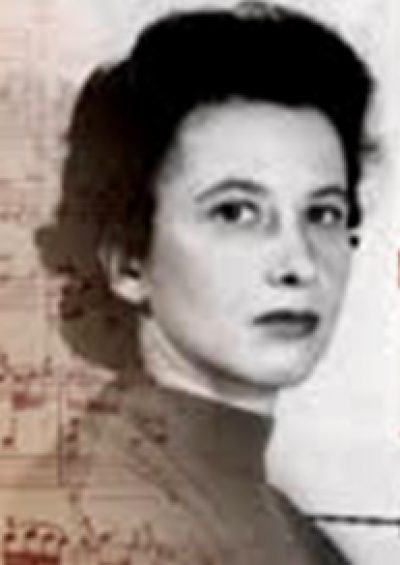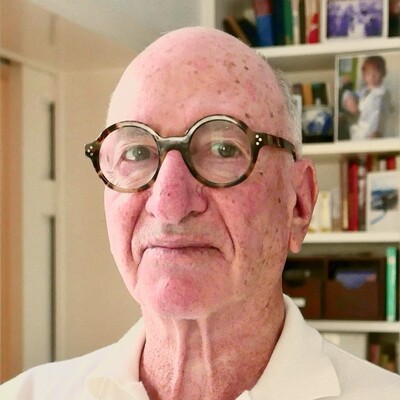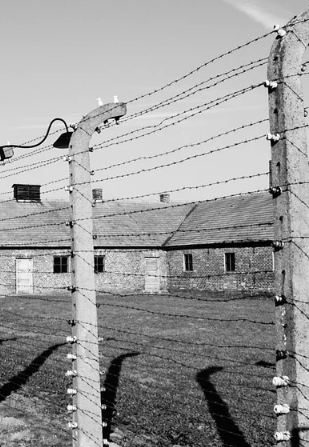Holocaust Ignorance: Today’s Dangers
There must be a new urgency to ensuring that people everywhere understand the horrors of the past and the dangers of today’s authoritarian trends.
April 22, 2018

More than 40% of Americans do not know that Auschwitz was a Nazi concentration camp. Over one-fifth of U.S. millennials have not or are not sure if they have heard of the Holocaust.
Findings of widespread ignorance of the Holocaust emerge from a new poll taken by Schoen Consulting and commissioned by the New York based Conference on Jewish Material Claims Against Germany.
Almost half of U.S. adults (45%) and millennials (49%) cannot name one of the over 40,000 concentration camps and ghettos in Europe during the Holocaust.
The survey results coincide with the publication in the U.S. of former Secretary of State Madeleine Albright’s new book, “Fascism: A Warning.”
She writes: “The 20th century was defined by the clash between democracy and Fascism, a struggle that created uncertainty about the survival of human freedom and left millions dead.”
International ignorance
I do not believe that the widespread ignorance of the Holocaust, in particular, and the horrors under authoritarian regimes in the past more generally, is confined to Americans.
Although, the decline in teaching civics and history in most of the U.S. education system has partially enabled greed, corruption, disregard for civil rights and democracy, to seize hold in major parts of the U.S. political landscape.
I have been involved over the last year in promoting a full-length documentary film about the life of my late Czech cousin, Zuzana Ruzickova.
The movie, Zuzana: Music Is Life, produced and directed by Harriet and Peter Getzels, has found young people in their 20s and 30s immediately making connections between today’s political environment and many of the aspects surrounding the Holocaust and Communism in Czechoslovakia from 1948-1989 that are central to the movie’s story.
The film has been seen on Czech and Swedish television, prominently featured in a U.K. festival and widely screened at film festivals in the United States where it has won awards.
But it has not been screened on TV or accepted in film festivals in Germany and in Poland – perhaps because festival organizers may believe that audiences no longer want to be reminded of the Holocaust or communism oppression in their countries.
Zuzana won the Munich ARD international harpsichord competition in 1956, which was to launch an international career where the sale of her records, especially of works by J. S. Bach, the number of her performances, and the range of special honors was perhaps greatest in Germany.
She returned there to perform just a decade after leaving Bergen-Belsen in large part because she believed that Germans had to be reminded that before the Hitler era they had a proud and deep culture, as her late husband the composer Viktor Kalabis said to Zuzana at the time: “You have to be the Jew who brings Bach back to Germany.”
Strengthening education
Major efforts have long been made in many countries to promote awareness of the Holocaust. The educational programs in many countries encouraged and assisted by The World Holocaust Remembrance Centre (Yad Vashem) in Jerusalem are enormously impressive. But their efforts, and those of Jewish museums and Holocaust educational centers in many countries, are not enough.
I believe that such efforts need to be complemented by a far greater focus on the arts, not only because this is a way to reach far greater audiences, but because many artists have found ways to highlight the issues and stimulate people to learn much more.
The power of art
For example, I was at the Boston Museum of Fine Arts recently and found a brilliant picture of shards and ornaments hurled together in a Cubist multi-color painting called “Disorder.”
It was painted in 1946 by Karl L. Zerbe, who was born in Germany in 1903 and died in Boston in 1972 where he had been a prominent art teacher for over 35 years, having fled Nazi Germany when his work was designated “degenerate art.”
Another example, if ever a picture could be said to say more than 1,000 words then it is Donald Sultan’s “Polish Landscape” that highlights railway tracks at Auschwitz, painted in 1990 and part of his series of “Disaster Paintings.”
“100 miracles”
My determination to have a film made about the life of Zuzana Ruzickova, quite apart from her wonderfully generous personality as a cousin, was stimulated by how she had managed to come through Terezin, Auschwitz, slave labor in Hamburg, and then Bergen-Belsen, as a teenager and remain more determined than ever to become a professional performer and teacher of music.
Her spirit never wavered despite oppression that started just three years after the end of World War Two under the Czechoslovak Communist regime – Zuzana and husband Viktor refused to join the Communist Party and she was also a victim of the rabid anti-Semitism that was part of the Party’s culture.
Zuzana became one of the greatest harpsichordists in the world in the second half of the 20th century and the only person ever to record the complete J.S. Bach keyboard works (re-released by Warner Records in late 2016).
Zuzana died at the age of 90 last September and this stimulated an enormous number of long obituaries in major newspapers in Europe and in the United States.
As you listen to Zuzana talk about the “100 miracles” that enabled her to survive, and the power of music that energized her to overcome the nightmares of her life, so the core messages that she espoused most publicly of never allowing fascism and communism arise again do exert a compelling educational impact.
Music’s impact
Just listening to some extraordinary music can have the same effect: Be it the urgent and powerful protests against war and dictatorship that are found in some of Dmitri Shostokovich’s compositions; and in listening to the magnificent concerto for harpsichord and orchestra that Viktor Kalabis wrote for Zuzana in 1975.
The latter was performed just a few weeks ago by her last student Mahan Esfahani and the Czech Radio symphony orchestra and dedicated to Zuzana’s memory.
The extensive ignorance of the Holocaust must be countered. By all mainstream educational means and by use of the power of the arts there must be a new urgency to ensuring that people everywhere understand the horrors of the past and the dangers of today’s authoritarian trends.
I believe that the desire for such knowledge among younger people is strong, once they have been introduced to the topic. I hear this in the reactions from people who have seen the Zuzana movie.
And I am reminded by the answer that Zuzana once gave to a question of why so many young people across the world used to come to her Bach concerts: “For so many people, Bach provides a sense of order in a world of disorder,” she said.
Takeaways
More than 40% of Americans do not know that Auschwitz was a Nazi concentration camp. Over one-fifth of US millennials have not or are not sure if they have heard of the Holocaust.
Major efforts have long been made in many countries to promote awareness of the Holocaust. But they are not enough.
Educational programs on the holocaust need to be complemented by a far greater focus on the arts. Many artists have found ways to highlight the issues and stimulate people to learn more about them.
There must be a new urgency to ensuring that people everywhere understand the horrors of the past and the dangers of today’s authoritarian trends.

